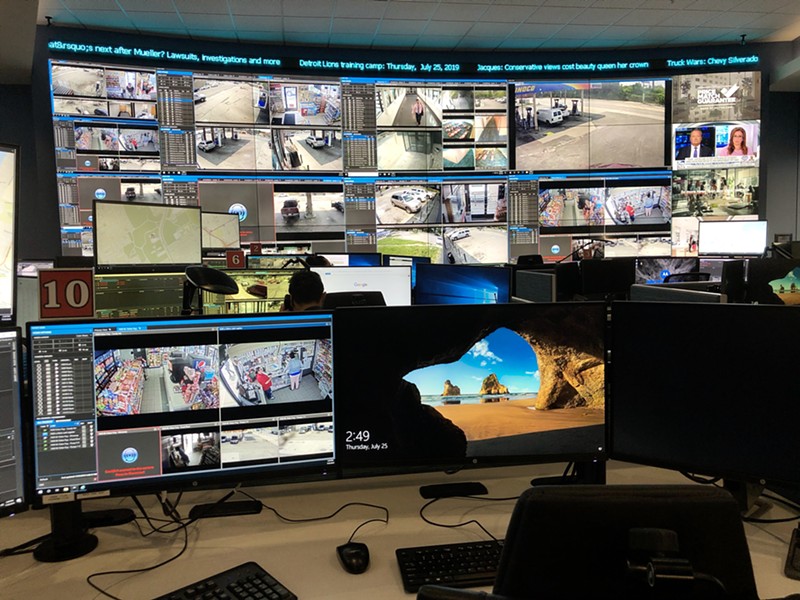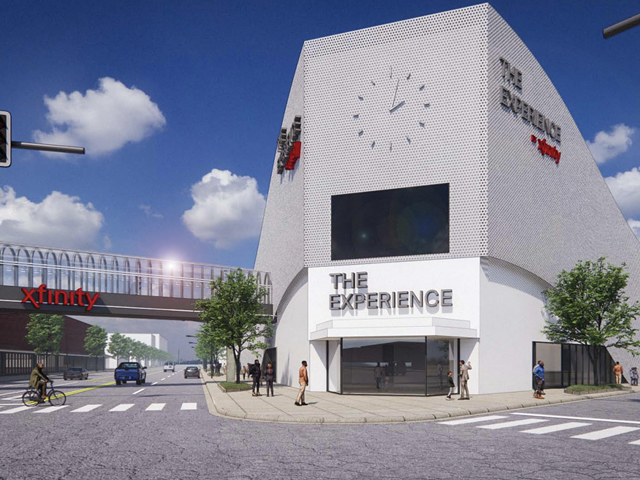Porcha Woodruff was eight months pregnant when six cops showed up at her door in Detroit to arrest her for a crime she didn’t commit.
The 32-year-old woman spent 11 hours at the Detroit Detention Center and was charged with robbery and carjacking.
Turns out, Woodruff was the victim of a false facial recognition match, making her at least the third person to be arrested by Detroit police based on the faulty technology, The New York Times first reported.
All three were Black, and Woodruff was the first known woman.
A month after Woodruff’s arrest, the Wayne County Prosecutor’s Office dismissed the case.
Woodruff filed a wrongful arrest lawsuit Thursday against the city of Detroit in the U.S. District Court for the Eastern District of Michigan.
“I have reviewed the allegations contained in the lawsuit. They are very concerning,” Detroit Police Chief James White said in a written statement issued to Metro Times. “We are taking this matter very seriously, but we cannot comment further at this time due to the need for additional investigation. We will provide further information once additional facts are obtained and we have a better understanding of the circumstances.”
According to the Wayne County Prosecutor’s Office, the police department identified Woodruff through a facial recognition search, and then the robbery victim picked out Woodruff’s photo from a selection of six head shots.
“He stated that she was the person that he had spent several hours with on the day he was robbed,” the prosecutor’s office said.
Since Detroit began using facial recognition software in 2017, opponents of the technology have warned that false matches would lead to wrongful arrests. Detroit police insisted they had policies in place to prevent this from happening and suggested opponents of the technology were fear-mongering.
Facial recognition technology has come under increasing fire after studies have shown that the software misidentifies people of color more often than white people, which Metro Times reported in a cover story in July 2019.
One of the leading critics of the technology, U.S. Rep. Rashida Tlaib, introduced legislation in March to ban the technology on the federal level and withhold money from state and local police departments that continue to use it.
It was the third year in a row that the House and Senate introduced the Facial Recognition and Biometric Technology Moratorium Act.
Tlaib has repeatedly said the technology is significantly flawed when used to identify people of color. Citing research that shows people are better at recognizing faces from their own race, Tlaib suggested in 2019 the optimal way to limit false arrests based on misidentifications is to hire Black analysts to examine the identities of Black suspects.
James Craig, who was then chief of the Detroit Police Department, suggested Tlaib’s suggestion was “racist” and “insulting.”
Nationwide, at least six people have reported being falsely arrested based on flawed facial recognition matches. All have been Black.
Detroit’s facial recognition software is especially pervasive because it’s used on a quickly expanding surveillance network of high-definition cameras under Mayor Mike Duggan’s Project Green Light, a crime-fighting initiative that began in 2016 at gas stations and fast-food restaurants. Since then, the city has installed more than 500 surveillance cameras at parks, schools, low-income housing complexes, immigration centers, gas stations, churches, abortion clinics, hotels, health centers, apartments, and addiction treatment centers. The city also installed high-definition cameras at roughly 500 intersections at a time when other cities are scaling back because of privacy concerns.
In January 2020, Robert Williams, of Farmington Hills, was arrested after the technology incorrectly flagged him as a shoplifting suspect. He was locked up for more than 30 hours in an overcrowded jail where he was forced to sleep on a cement floor, according to a lawsuit he filed against the city.
The technology also misidentified Michael Oliver in July 2019. Oliver was arrested and falsely accused of stealing a teacher’s cellphone and throwing it. He also filed a lawsuit against the city.
In 2019, the Detroit Board of Police Commissioners approved a policy to govern the use of facial recognition technology. Under the policy, facial recognition identification is considered only a lead and cannot be used as the sole basis for an arrest. Police are prohibited from using the technology for immigration enforcement, minor crimes, and identifying people during protests, and police analysts must verify any facial recognition matches the software produces and get it approved by a supervisor.
Despite the policy, Detroit police continue to arrest people based on false matches.
Subscribe to Metro Times newsletters.
Follow us: Google News | NewsBreak | Reddit | Instagram | Facebook | Twitter







